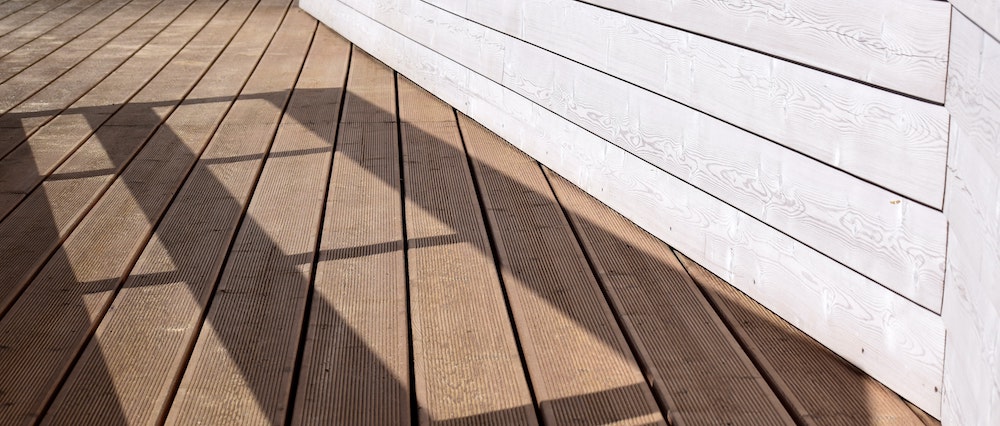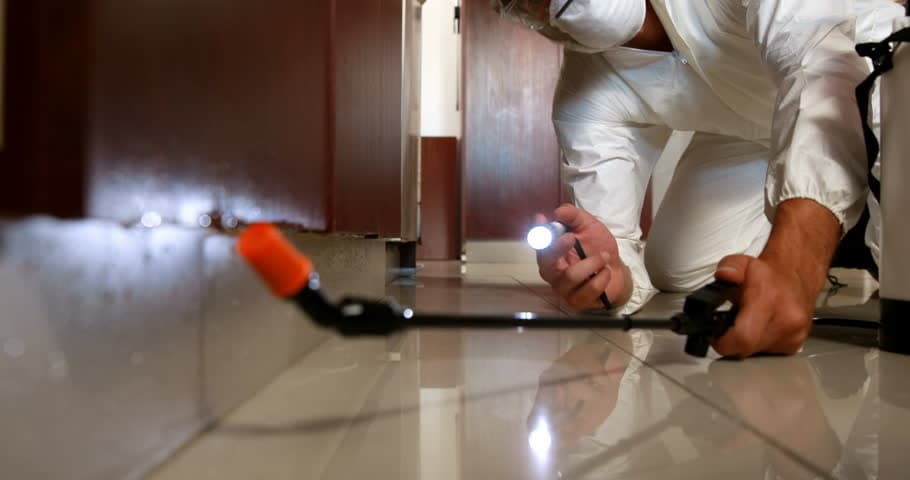Ants are noticed in the garden and house areas, mostly during rainy seasons or warm weather. From research, they have it that apart from ants being the most sociable insects, they also live together in colonies that range from 100s to millions of ants. The ant colony depends on their species. There is a variety of different ants’ type. However, the typical ants that often invade the house include acrobat, odorous house, carpenter and Pharaoh ants.
These types of house-invading ants are sometimes harmful, dangerous and cause a lot of damage. They get to every corner of the house, including the kitchen, and you might find them in your food. As many as they are, causing damage to your furniture or even plants in the garden is not a hard task. Not to forget, they can also create stinging bites on you and your family members.
Seeing them in your garden or home environment is very frustrating, and you might want to do anything to have them disappear. On the other hand, using pesticides to eradicate them is a good option, but the chemicals contained in them are harmful to both human beings and the environment.
The good news is that there are non-toxic and natural ways that you may use in controlling the ants. The methods are handy, but they will require some of your time and patience. We have listed a few natural ways to get rid of ants and stop them from ever returning to your home and environment.
Ant Infestation – Consequences and Prevention
Generally, noticing a few ants in your home doesn’t necessarily mean there’s an ant infestation. Typically, there are specific signs that may indicate possible ant invasion. If you’re wondering whether you’re suffering from an ant infestation, here are some of the common symptoms:
There are live ants
As already mentioned, a few ants in your home isn’t a reason to panic. However, there’s a clear limit to what you’d typically let pass. In such cases, a larger number of ants inside your home may not look good.
Usually, this should alert you to a more massive colony or a nest somewhere near your home. Since ants are always on the hunt for a meal, you can assume that they’re going through your kitchen. Ultimately, they’re taking back the food to their colony.
If you notice that there’s a trail of ants marching inside your home, then you don’t need any further signs. Perhaps, their manner of marching one behind the other is a result of the pheromone trails they lay down. Usually, this same path can help you identify the severity of the issue as it attracts all nearby ants.
Ants have flooded your pets’ food bowls
Perhaps, another sign that your problem is getting out of hand is when ants flood your pets’ food bowls. As you can expect, they don’t discriminate when it comes to food. If you find ants in your pet’s bowl, then you’re likely experiencing an ant infestation. In such cases, you’d want to keep your pet’s food area clean and dry.
Related Read: Post Renovation Cleaning – Is It Useful?
There are ant piles and nests
Arguably, finding ant piles and nests is the final stage of your investigation. What’s more, it’s the most evident sign of an ongoing ant infestation in your home. Perhaps, ants outside your home may be making their way inside by bringing large mounds of dirt. They can put you in huge trouble, especially if you find them located near or right beside your home.
What are the effects of an untreated ant infestation?
Just like any other insect invasion, an ant infestation is an unpleasant issue to have. In most cases, they’ll wreak havoc in your kitchen and eating areas. However, some species can eat away your entire house.
For example, the sugar ant will snack on any food that you’ve left on the counter. If you manage to keep your food sealed, you’ll deal with them relatively easy. Moreover, a professional pest control expert will eliminate them in no time.
Unfortunately, not all ant species are as harmless as sugar ants. Arguably, the carpenter ant is one of the most destructive species that may invade your property. Unlike sugar ants, these species love digging tunnels and nesting in wood.
Over time, they may cause severe damage to the structural integrity of your house. Therefore, you should take immediate action to limit the potential damage before it’s too late.
Find Top Pest Control Services
What are the possible damages to my home?
In most cases, you’ll likely get away without physical damage to your property. Still, you should be wary of carpenter ant infestations, as you may face structural consequences.
Because of the damage they cause, many people confuse carpenter ants with termites. However, it’s essential to differentiate between the two. Unlike termites, carpenter ants gain no nutritional value from eating wood.
If you’re wondering how you can distinguish a carpenter ant infestation from a termite one, it’s easier than you think. Carpenter ants hollow out the wood and empty it, so it’s clean, polished, and smooth. Also, you’ll likely find holes where worker ants expel debris, including dead insects.
Compared to termite infestation, carpenter ant infestation isn’t as damaging. However, an ant colony is still hazardous enough to wreak havoc on your home structure. Over time, they may eat out the wooden support beams and frame in your home.
What are the Health Risks During an Ant Infestation?
Perhaps, the worst-case scenario may pose a danger to the structural integrity of your home. Arguably, a severe case of carpenter ant infestation may leave you with sloping floors, bulging walls and sinking ceilings. Installing insect screens can prevent ants and other pests from entering your home in the first place.
Still, several other species may cause different types of damage to your home. Unfortunately, they may not cause mere annoyance. Here’s a list of some of the health risks that may come with an ant infestation.
Food Contamination
As harmless as they look, ants can pose a danger to you and your family. Since they move about your home, they can easily pick up and contaminate your food or utensils with bacteria.
Sometimes, pharaoh ants and sugar ants can contract and contaminate your food with germs that come from faeces. The list of bacteria may include E. coli, Salmonella, Streptococcus, Staphylococcus and many more.
Even though the risk of food contamination is relatively small, it’s still possible. Therefore, it’s best to take steps to keep your food safe. For example, you should seal your food and always dispose of food crumbs on your floors and countertops.
Besides, you should remove any sources of moisture in your kitchen and throw away any leftovers. Ultimately, you’d want to keep your eating area clean and free of leftover food.
Read also: Different Types of Flooring Materials For Home Owners To Choose (Updated)
Bites And Stings
Another way ants can harm you is by biting or stinging. Usually, an ant can pinch your skin with its jaws if it feels that you’re a threat. Generally, a bite may not cause any health problems. However, there’s a risk of infection after it.
Unless you clean it and take care of it properly, the bite can quickly inflame your skin. As a result, it may turn into a blemish that can leave a scar.
On the other hand, some ant species like fire ants may inject venom into your skin. Such cases can also pose a danger to your health, especially if you have an allergy.
Typically, an ant sting may cause itchiness and red bumps in the bite location. If there’s no reaction, these bumps usually start to disappear in an hour. In rare cases, victims may experience more severe symptoms like nausea, dizziness, diarrhoea and such.
Allergic Reactions
Perhaps, an allergic reaction is what you should fear the most. In such cases, there may be severe consequences. Arguably, the worst-case scenario includes a whole-body response, which may start within minutes of being bitten. If you experience any symptoms like dizziness, a drop in blood pressure, or unconsciousness, you must seek medical attention.
How Do You Prevent Ant Infestations for good?
As you can imagine, there are several ways to prevent an ant infestation in your home. Perhaps, the first and most crucial step is to make sure all surfaces inside and outside your home are clean. Leaving exposed food, scraps, or crumbs is like an open invite for ant colonies. Also, don’t forget to wash the dirty dishes, sweep and vacuum regularly.
Furthermore, sealing and locking your food in containers is essential to prevent ant invasions. Arguably, if ants can smell the food in your kitchen, you risk compromising all initial steps.
Next, you’d want to seal any cracks that ants might be using to enter your home. If you’ve already found ant trails, make sure you wipe them with a mixture of vinegar and water. That way you’ll remove the pheromones in the path for good.
Natural Remedies To Getting Rid Of Ants
1. Cinnamon to get rid of ants
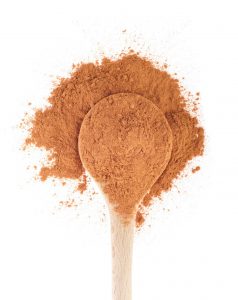
The smell of Cinnamon discourages the ants from coming close to the house or surrounding your kitchen walls, making it a useful repellent to household ants.
The International Journal of Scientific and Research Publications researched in 2014 and published their reports about the essential oil in cinnamon yielding a positive outcome, not only in ants’ repellency but also in insecticidal activities.
All you have to do is;
- To a cup of water, add an estimate of ¼ – ½ teaspoon of essential oil of cinnamon before soaking a ball of cotton in the solution.
- In the areas where the ants may seem to access the house or points you don’t want them in, wipe the solution severally on a daily basis, until when you cannot see any ants anymore.
- Alternatively, put some whole cloves and ground cinnamon on the entry points of the ants.
That is quite an easy way to say goodbye to them.
2. White Vinegar

The house-invading ants cannot handle the strong smell of white vinegar, thus applying it to their entry points sends them an immediate eviction notice. White vinegar, in addition to that, masks the scent trail of the ants, therefore they cannot trace their direction. The procedure for using white vinegar as a repellent is as below;
- Mix equal portions of water and white vinegar
- Have the solution poured into a spraying can
- To the solution, add a couple of drops of any essential oil and shake well the mixture
- Spray the mixture onto baseboards and around any entry points of the ants
- Give it an hour then wipe the accumulated dead ants by use of a paper towel
- Repeat the procedure frequently until the ants are no more
Some people clean their windowsills, floors, and counterparts with the above vinegar solution as a preventive measure against the ants.
3. Borax
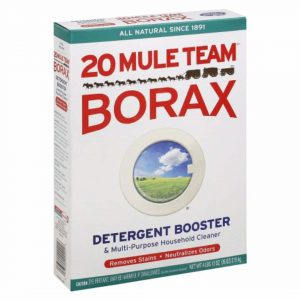
Borax is an ant repellant. It is toxic to the ants and helps you to eradicate them in your house, environment, and garden. Ants will be attracted to it, and they will be killed after they have ingested Borax. To use borax, use the below instructions.
- Estimate equal portions of borax and food jelly and mix the two.
- Put the mixture on a plate where the ants have infested. Alternatively, you can mix granulated sugar with borax in a 3:1 ratio. Make a syrup out of it by adding water consistency. Apply the paste to the ants infested areas.
- Coming up with a paste of an equal portion of borax, water, and cornmeal and applying it to the entry points is another option to get rid of the ants.
Borax is toxic, hence, advisable to keep it out of reach of small children and pets.
4. Lemon
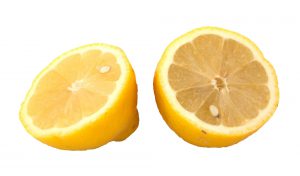
Using lemon in your kitchen or the entire house is another way to get rid of ants. Lemon is an ant-proof. Its smell chases away ants while its acidic properties mask the ant scent trails. Below is how to use lemon to kill ants on your premises.
- Rub or apply lemon juice on the windowsills, door thresholds and any other area that the ants may break in through.
- You can also opt to put a couple of lemon essential oil on a ball of cotton and leave the cotton ball inside the cabinets or ants infested areas.
- Scattering tiny peels of lemon slices around the compound and entry points of the house.
5. Cucumber Peel
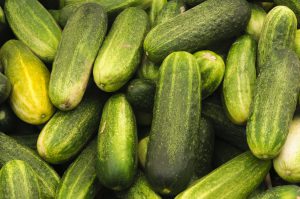
Cucumber peels are also another trick that has been in existence for a while to get rid of ants in your home and garden. Ants naturally avoid aversion to cucumber. They cannot handle the taste. The bitterer the taste of the cucumber, the better. Although, regular cucumbers can still work efficiently.
- After peeling a cucumber, scatter the pieces of the peels in places where the ants have infested.
- Replace the fresh peels on a daily basis
- Repeat the procedure until you cannot see any ants.
Keep the house, compound and garden clean

To stop the ants from making your home their home, you must put some extra effort when it comes to cleaning the house. Make it a guarantee that the countertops, cabinets, and floors are always clean and clutter-free.
- Food containers should be kept tightly sealed, especially the ones that are used in sugar storage, syrup, honey and any other food that can easily attract ants.
- Food spills on the cooker, floor and table should be cleaned right away to avoid accumulation and avoid at all costs to leave dirty dishes in the sink for a longer duration.
This way, there is no way your home will attract ant infestation.
Find Reliable Pest Control Companies in Singapore
Homees provides a list of reliable pest control companies in Singapore. Pest control companies typically deal with the following infestations:
- insects: ants, bed bugs, termites, wasps, fleas, lizards, cockroaches
- rodents: mice, rats
If you are looking for pest control professionals to match your personalised requirements, you can contact Homees HomeMatch for a more quick and fuss-free experience.
You can find out more information from NEA’s website on engaging pest control operators: https://www.nea.gov.sg/our-services/pest-control/pest-control-operators.
You can also find out a list of vectors, which are organisms that transmit diseases, from NEA’s site: https://www.nea.gov.sg/our-services/pest-control/overview.
Related Articles
- Types Of Termites And How To Prevent Them (Updated 2022)
- How to get rid of cockroaches – Sanitation, Sprays, Baits and IGRS
Homees.Co
Homees.co is your go-to platform to explore a wide range of reliable aircon services tailored to your needs. For service providers, joining Homees.co allows you to reach a broader audience and showcase your expertise. And be featured in our articles. Check out our other services, and join us to unlock endless possibilities for your home or business.
As Singapore’s go-to platform for home services, we make it easy for homeowners to find trusted, highly-rated vendors while providing professionals with a platform to grow their business.
- Check out our other services.
- Join us as a homeowner to unlock endless possibilities for your home.
- Join us as a merchant and stand a chance to be featured in our next article.
We’re here to improve your home
Speak to hundreds of reliable pros, view their gallery, inspirations, and know the best prices with our resources.
Have full control over your home improvement projects with Homees.



